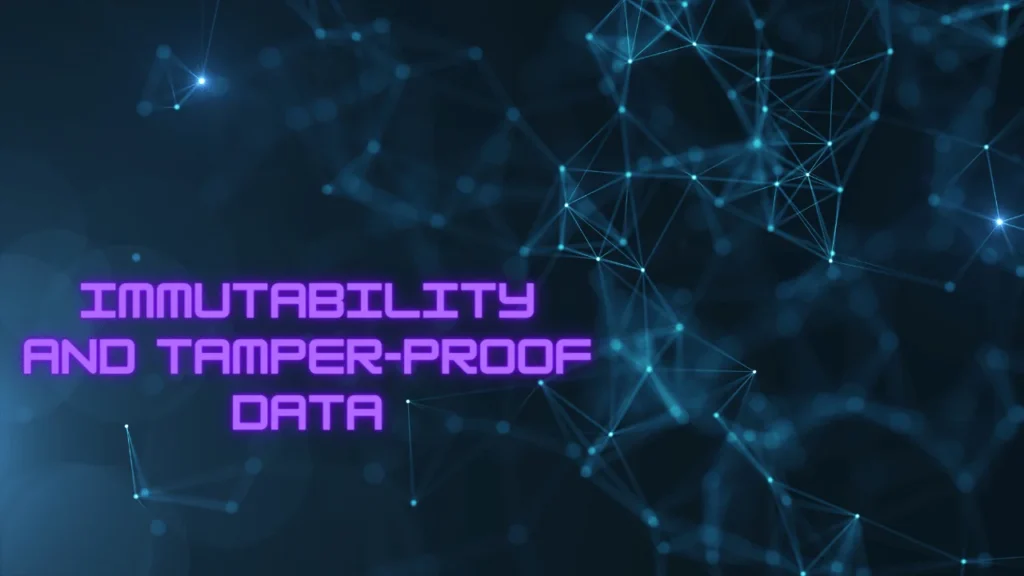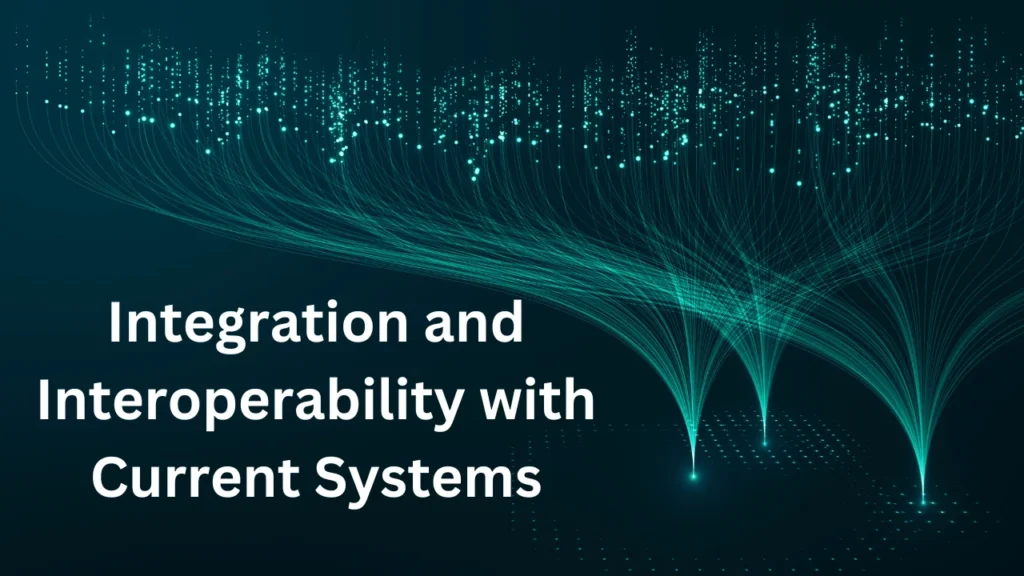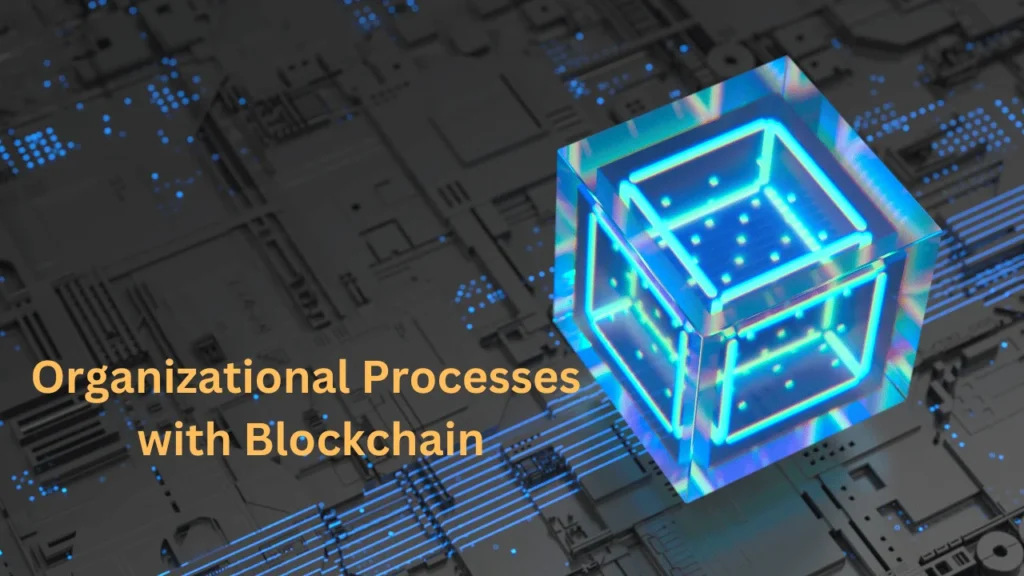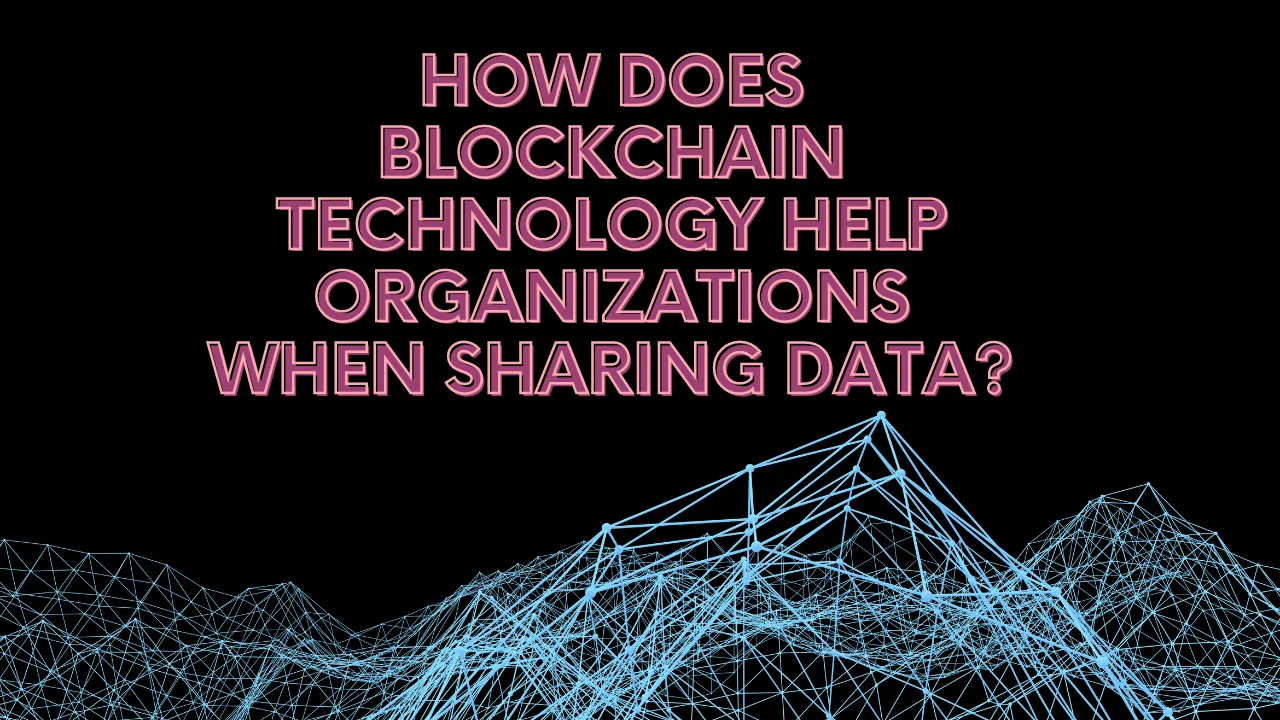Ensuring the security, transparency, and integrity of data has become an absolute necessity for organizations globally in this digital age, where data is valued similarly to currency. Blockchain technology’s revolutionary advantages are changing the way businesses handle and share data, and a new era of data sharing has begun. Examining the effects of blockchain technology on confidentiality, efficiency, openness, and responsibility, this article explores the various ways in which this technology improves the sharing of organizational data.
Understanding the Audience and Purpose
Anyone in a position of authority within their company who is looking for fresh ideas to improve data sharing in a safe and effective way will find what they need in this article. Traditional problems with data sharing, such as security breaches, data manipulation, and lack of transparency, can be solved by incorporating blockchain technology. By providing a thorough overview of blockchain technology’s advantages, mechanisms, and applications in improving organizational data sharing practices, the insights offered here hope to foster confidence and enthusiasm for blockchain’s potential.
Immutability and Tamper-Proof Data

Cryptographic Hashing Digital ledger
A key feature of blockchain technology is its capacity to use cryptographic hashing to guarantee the authenticity of data. Cryptographic hashes, which are like digital fingerprints, link each data block to the one before it. A change to the hash of a block indicates that some data within the block has been modified. Because it cannot be changed, blockchain is a great way to keep track of transactions and shared information in a way that no one can alter it. This helps to keep data secure and builds trust among users.
Role of Decentralized Ledgers
Due to blockchain’s decentralized design, no one entity can exert control over the entire database. Instead, the distributed ledger system guarantees openness and collective responsibility by making sure that all nodes in the network have a copy. This ensures that all parties involved have access to the same, unaltered information, which is especially important for organizations that share data across different departments or with external partners.
Consensus Mechanisms in Blockchain
Blockchain employs consensus mechanisms, such as Proof of Work (PoW) and Proof of Stake (PoS), to validate transactions. To further guarantee the accuracy and integrity of shared data, these mechanisms necessitate that network participants agree on the validity of transactions before they are added to the blockchain. Blockchain is a trustworthy platform for safe data sharing because this process gets rid of the possibility of fraudulent transactions and illegal data changes.
Smart Contracts for Data Transactions
By using predefined rules, smart contracts automate the execution of blockchain-based agreements. There is no need for middlemen or disputes because these contracts execute automatically when conditions are satisfied. This allows businesses to enforce data sharing agreements in a more open and efficient manner, knowing that everyone is playing by the rules.
Data Security and Privacy Measures
Advanced encryption and access controls are just two of the security features that blockchain technology offers to keep sensitive data safe from prying eyes. Because only authorized individuals can access the shared data, organizations can rest easy when they share it. Industries like healthcare and finance, where data privacy is paramount, require this degree of security.
Integration and Interoperability with Current Systems

Overcoming Interoperability Challenges
Among blockchain’s many benefits is its compatibility with preexisting organizational databases and systems. Organizations can adopt blockchain technology with ease and reap its benefits alongside their existing processes thanks to its interoperability, which eliminates the need to overhaul their IT infrastructure.
Streamlining Processes Through Blockchain Integration
To save time and energy, businesses are incorporating blockchain technology into their data sharing processes to make data management and verification more efficient. In addition to increasing productivity, this efficiency gives you a leg up in the ever-changing market.
Blockchain’s Role in Enhancing Data Accessibility
For businesses that want to share data efficiently and safely, blockchain technology is a powerful tool because it both secures and greatly improves the accessibility of data. The ways in which blockchain technology allows for the accessibility of data while preserving its security and privacy are discussed under the following headings.
Blockchain Data Security
By utilizing sophisticated cryptography, blockchain technology improves data security and prevents breaches caused by unauthorized access. Because all blockchain transactions are encrypted and linked to each other, hackers will have a very hard time gaining access to the data. Having a secure environment for data sharing is essential for organizations that handle sensitive information.
Blockchain Privacy Measures
Data sharing raises serious privacy concerns; blockchain technology provides a solution with its decentralized ledger system. Private blockchains and permissioned access are two ways that users can keep their information private on the blockchain, which is otherwise transparent. By utilizing these features, organizations can manage who has access to which data, keeping sensitive information private while still taking advantage of the security and transparency offered by the blockchain.
Blockchain and Data Accessibility
The capacity to improve data accessibility is one of the most notable aspects of blockchain. Data is always accessible with blockchain because it uses a distributed ledger that can be accessed by authorized users at any time. Because it enables secure and private data sharing across various geographic locations, this is especially useful for companies with global operations.
Organizational Processes with Blockchain

Organizations can greatly benefit from blockchain’s capacity to automate and secure data sharing processes, which in turn increases efficiency. Some important ways in which blockchain technology simplifies processes and frees up resources are highlighted below.
Reducing Fraud with Blockchain
The immutability of the blockchain ledger makes it a powerful weapon in the fight against fraud. The immutability of recorded data on the blockchain makes it ideal for detecting and preventing fraudulent activities. Industries with a high incidence of fraud, like the financial and insurance sectors, greatly benefit from this capability.
Secure Transactions with Blockchain
Organizations also benefit greatly from the secure nature of blockchain transactions. There is less chance of manipulation or illegal access because blockchain’s cryptographic protocols make every transaction safe and verifiable. For transactions involving sensitive data, this security feature is crucial for ensuring reliable and secure data sharing.
Efficient Data Sharing with Blockchain
Through the elimination of middlemen and the acceleration of data verification, blockchain technology simplifies the data sharing process. Another way smart contracts improve efficiency is by automating transactions and agreements. This effectiveness not only speeds up data exchange and decreases operational costs, but it also allows organizations to react faster to opportunities and changes in the market.
Future of Blockchain in Data Sharing
Blockchain technology is transforming data sharing practices and is becoming an important player as organizations navigate the complexities of digital transformation. Businesses seeking to promote an open, efficient, and secure data-sharing environment should consider blockchain as an essential tool due to its capacity to guarantee data integrity, improve security, and simplify processes.
Must Visit: Blockchain Development: The Complete Guide
FAQs
How does blockchain ensure data integrity?
Blockchain ensures data integrity through cryptographic hashing, where altering any piece of data changes its hash value, making unauthorized changes easily detectable.
Can blockchain technology be integrated with existing systems?
Yes, blockchain can be integrated with existing organizational systems and databases, allowing for interoperability and leveraging blockchain benefits without overhauling current infrastructures.
How does blockchain improve data accessibility?
Blockchain improves data accessibility by maintaining a decentralized ledger that is accessible to all authorized users, ensuring data can be accessed anytime, anywhere, without compromising security.
What makes blockchain secure against data breaches?
Blockchain’s security against breaches comes from its use of advanced cryptography and the immutable nature of its ledger, making unauthorized access and data tampering extremely difficult.
Can blockchain technology reduce operational costs?
Yes, by streamlining data sharing processes, automating transactions through smart contracts, and reducing the need for intermediaries, blockchain can significantly reduce operational costs for organizations.
Conclusion
When it comes to sharing data, blockchain technology provides revolutionary benefits for organizations. These include increased security, transparency, efficiency, and accountability. When it comes to safe and efficient data sharing across different industries, blockchain is the way to go because of its features like interoperability, consensus mechanisms, smart contracts, decentralized ledgers, and immutability. We can look forward to a future where data integrity and security are assured thanks to the continued evolution and adoption of blockchain technology, which will surely reshape the paradigms of data sharing.

Brandy Stewart, an enchanting wordsmith and seasoned blogger, weaves compelling narratives that transport readers to uncharted territories. Infused with perceptive viewpoints and dynamic storytelling, Doris exhibits a command of language that enthralls both hearts and minds, leaving a lasting mark on the literary panorama.

